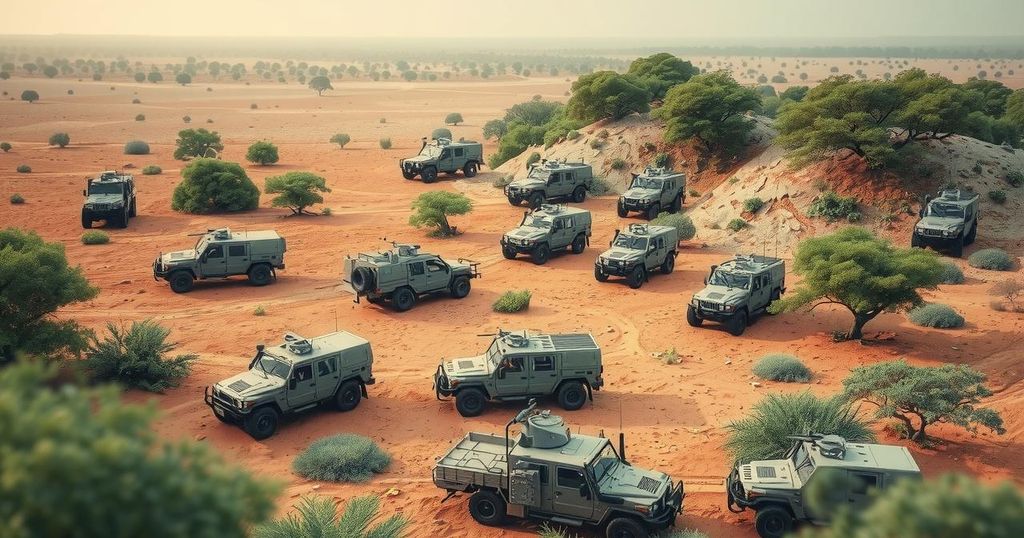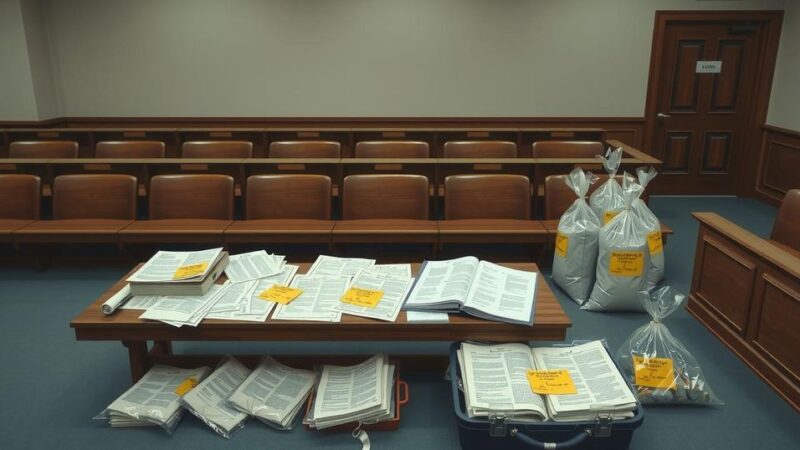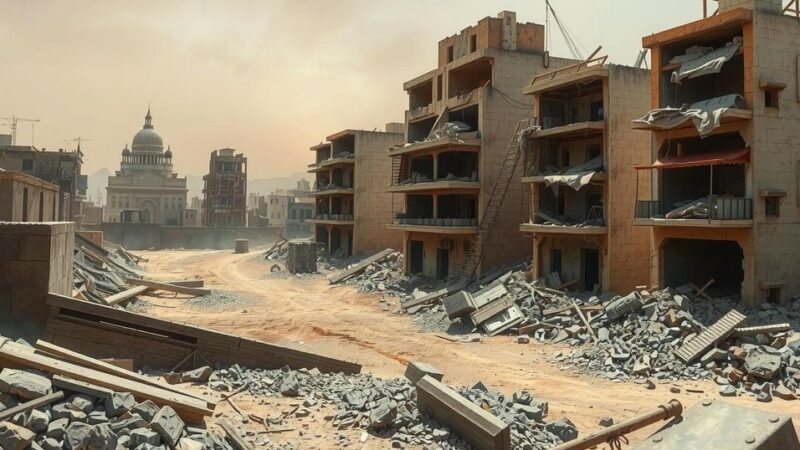Ugandan army special forces have been sent to Juba, South Sudan, to bolster security amid rising tensions between government factions. This deployment follows deadly clashes that threaten a fragile peace agreement established in 2018. President Kiir has urged calm, while the international community expresses concern over potential escalation into war.
On Tuesday, the Ugandan army chief announced the deployment of special forces to Juba, the capital of South Sudan, in response to escalating tensions that threaten a fragile peace agreement between President Salva Kiir and Vice President Riek Machar. The announcement came amid increasing instability in South Sudan, reportedly exacerbated by recent clashes between factions loyal to the country’s leaders in the northeast.
“As of 2 days ago, our Special Forces units entered Juba to secure it,” stated Ugandan army chief Muhoozi Kainerugaba on platform X. He emphasized, “We shall protect the entire territory of South Sudan like it was our own.” This statement reflects the commitment of Uganda to maintain stability in South Sudan, drawing on its historical involvement in the region.
Ugandan army spokesman Felix Kulayigye confirmed the troops had been dispatched to Juba specifically to protect the South Sudanese government, stating, “We had instructions to deploy and we deployed the troops there,” as reported to French news agency AFP. This marks a significant moment, given Uganda’s earlier military intervention during South Sudan’s civil war.
The deployment occurs against the backdrop of a fragile power-sharing agreement established in 2018, which ended a five-year civil conflict. Recent violent confrontations in Upper Nile State raise concerns regarding the sustainability of this agreement, especially after a UN helicopter was fired upon during a failed rescue operation, leading to casualties among South Sudanese military personnel.
President Kiir appealed for public calm, asserting, “I have said it time and again that our country will not go back to war. Let no one take law into their hands.” He reassured citizens, “The government which I lead will handle this crisis. We will remain steadfast in the path of peace.”
In contrast, Machar’s allies alleged that his forces are inciting unrest with support from the White Army, a group of armed youths from the Nuer ethnic community. Machar’s office condemned the helicopter attack, labeling it as “barbaric” and reaffirming the commitment to restore peace in the region by engaging all stakeholders.
The prevailing turmoil has raised alarms on an international scale, with the UN Commission on Human Rights in South Sudan expressing concerns over an “alarming regression” in the country’s progress. The International Crisis Group cautioned that South Sudan is swiftly moving towards a full-scale war, with its Horn of Africa director Alan Boswell urging the UN to prepare peacekeeping interventions to prevent potential large-scale ethnic violence.
The situation in South Sudan remains precarious, with the deployment of Ugandan troops to Juba highlighting the urgent need for stability. The ongoing tensions between the government factions and accusations of incitement underscore the delicate balance required to maintain peace. International bodies urge vigilance and proactive measures to avert potential humanitarian crises, bearing in mind the grave implications of further conflict in the region.
Original Source: www.rfi.fr






